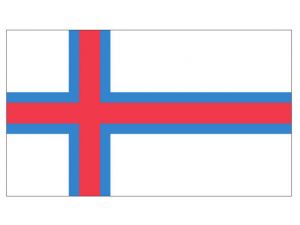Language/Faroese/Grammar/Basic-Adjectives
Introduction
Congratulations on making it this far in our Complete 0 to A1 Faroese Course! In this lesson, we will be exploring the wonderful world of basic adjectives in Faroese. Adjectives are a fundamental part of any language, allowing us to describe and express the qualities of people, places, and things. By the end of this lesson, you will be able to identify Faroese adjectives, understand their forms, and use them to create descriptive sentences. Let's dive in!
Faroese Adjectives
Adjectives are words that describe nouns or pronouns. In Faroese, most adjectives come after the noun that they describe. Unlike in some languages, Faroese adjectives do not change their form based on the gender of the noun. However, they can change their form based on the number of the noun.
For example, the adjective "góður" (good) can become "góð" in the singular feminine form:
| Faroese | Pronunciation | English |
|---|---|---|
| góður bók | goh-dur bohk | good book (singular masculine) |
| góð bók | goh bohk | good book (singular feminine) |
| góð bøkur | goh boh-kur | good books (plural) |
Forms of Adjectives
Adjectives in Faroese can take four different forms: positive, comparative, superlative, and absolute comparative. In this lesson, we will focus on the positive form of adjectives, which is also known as the base form or the dictionary form. By learning the positive form of an adjective, you will be able to build on this knowledge to form the comparative and superlative forms in later lessons.
Positive adjectives express the basic quality or characteristic of a noun or pronoun, without making any comparisons or degrees of intensity. In Faroese, positive adjectives typically end in "-ur" in the masculine form and "-in" in the feminine form. However, there are some adjectives that do not follow this pattern.
Examples of Basic Adjectives
Here are some examples of basic adjectives in Faroese:
- lítill (little)
- stór (big)
- góður (good)
- veikur (weak)
- sunnur (healthy)
- gløggur (clever)
- blákulur (blue)
- røður (red)
- grønur (green)
- gulur (yellow)
You may have noticed that some of the adjectives have an "-ur" ending in both the masculine and feminine forms, while others have an "-in" ending in both forms. It's important to memorize the forms for each adjective, as there is no set rule to follow.
Using Adjectives in a Sentence
Now that you know the basic forms of Faroese adjectives, let's explore how to use them in a sentence. As previously mentioned, Faroese adjectives usually come after the noun that they describe. However, this order can be inverted to create a more poetic or stylistic effect. Here are some examples:
- barnið lítla (the little child)
- húsini stór (the big houses)
- mannin góður (the good man)
- kvinna veik (the weak woman)
- hesturin sunnur (the healthy horse)
- málfrøðingurin gløggur (the clever linguist)
In these examples, you can see how the adjective comes after the noun it describes, except for the last example where the adjective comes before the noun for stylistic effect.
Exceptions
As with any language, there are always exceptions to the rules. In Faroese, some adjectives have irregular forms or do not follow the typical "-ur" or "-in" endings. Here are a few examples:
| Faroese | Pronunciation | English Translation |
|---|---|---|
| góður | goh-dur | good |
| ítrur | EE-tur | beautiful |
| longur | loh-ngur | long |
| blandur | BLAHN-dur | mixed |
Practice
Time to put your knowledge to the test! Below are some sentences with missing adjectives. Your task is to complete the sentences with the correct form of the adjective in Faroese.
- í hesum bókina eru {{_}} søgur (In this book, there are good stories).
- húsini eru {{_}} (The houses are big).
- hann er {{_}} (He is weak).
- skólin er {{_}} (The school is small).
- hoyr tína {{_}} rødd! (Listen to your beautiful voice!)
Conclusion
Well done on completing this lesson on basic adjectives in Faroese! You now have a solid understanding of how to identify and use adjectives in a sentence, as well as their different forms. Keep practicing and building on this knowledge, and you will be well on your way to becoming a fluent speaker of Faroese!

